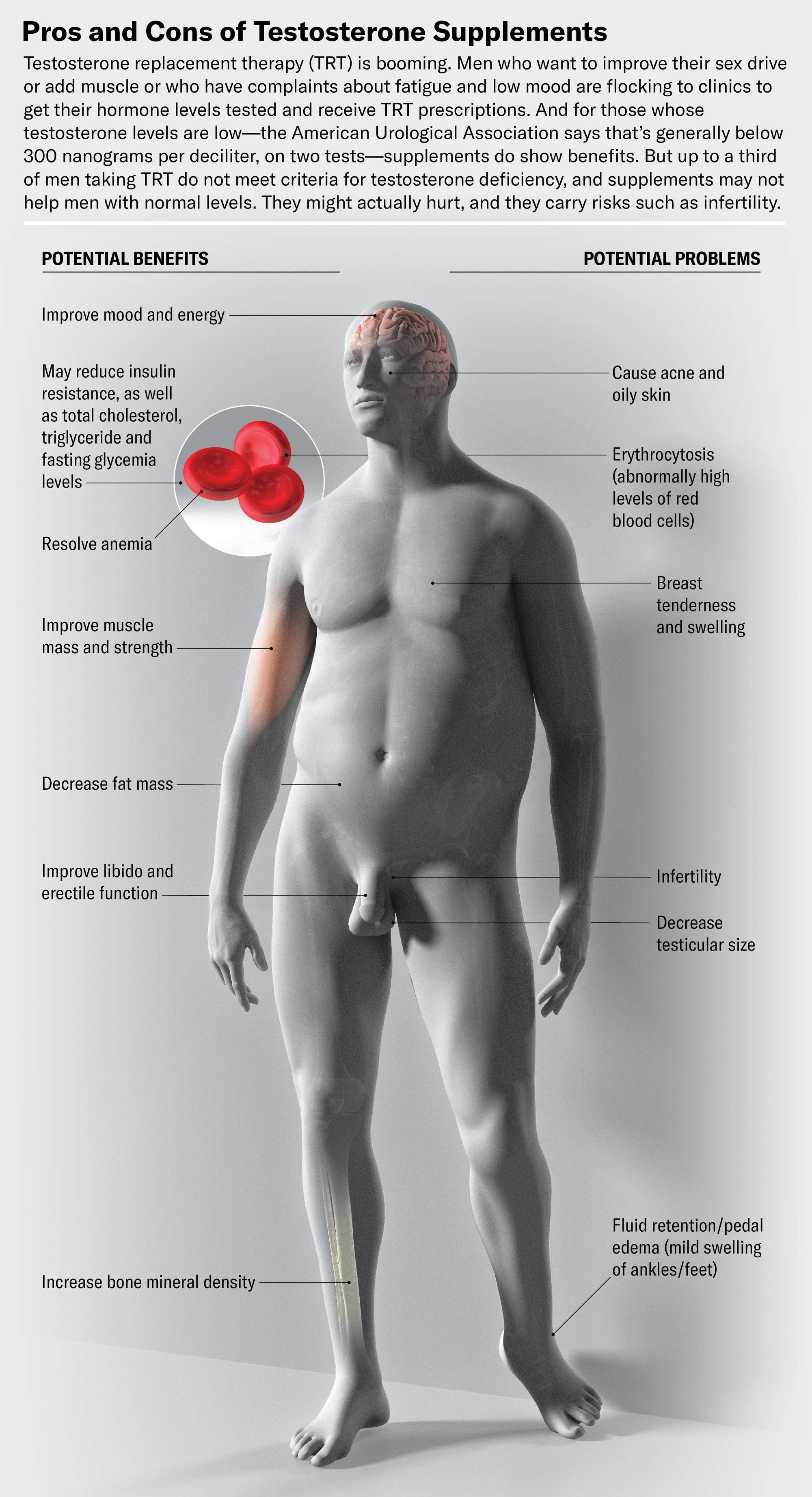by STEPANIE PAPPAS

To boost mood and manliness, men are spending lots of money on the hormone testosterone—yet they may see trouble instead of benefits
Rob, 42, is a fitness guy. He loves working out, spends his spare time in the jujitsu gym and eats a high-protein diet heavy on avocado oil. He cares about his health and wants to optimize it, and a lot of the social media influencers he follows are the same.
So a few years back, when Rob started seeing ads for testosterone replacement therapy—TRT—pop up in his feeds, he was intrigued. (Names of patients in this story have been changed to protect their privacy.) Rob was already a man in good shape. But testosterone sounded like a great way to get an extra edge.
“I bought into what I was listening to on social media, which is, ‘You’re going to feel better, you’re going to get stronger, and you’re going to look better,’” he says.
Rob went to a local, privately owned clinic. There he got a blood test, which revealed that his testosterone was well within normal range. “I certainly didn’t need TRT,” he says.
The clinic prescribed it anyway.
Rahim, 48, tells a similar story. He walked into a men’s health clinic a decade ago looking for an energy and fitness boost. He got an injection that very day. On subsequent visits the clinic pushed his dose higher and higher, but he perceived little benefit. “I just felt like I was taken advantage of,” he says now. “I felt like somebody was using my body to make money.”
Testosterone therapy—prescription supplements in the form of pills, patches, injections or implantable pellets—has probably never been more publicized or popular. Podcaster Joe Rogan is on it. On Reddit and on TikTok, on highway billboards and in TV commercials, you’ll see testimonials in praise of TRT promising mood boosts, better sex, extra energy and quite possibly an abdominal six-pack. The global market has been estimated at $1.9 billion.
For the right men, usually those with seriously low levels of the hormone, TRT can improve mood, energy levels and sex drive. It can increase muscle, decrease fat and lower levels of biomarkers for heart disease. Rigorous studies have dispelled once common medical concerns that the supplements increase the chance of prostate cancer; they don’t. And many responsible clinics that prescribe TRT inform their clients of the potential risks and benefits and monitor them closely.
But many men getting supplements may not have low testosterone to begin with, and for them, boosting levels of the hormone even higher could cause harm. There is a lot of medical disagreement about what constitutes “low,” driven by several studies with different populations and different cutoffs. Because of this uncertainty, some clinics will legally prescribe TRT for men whose hormone levels are, according to many measures, just fine. “It will not make you live longer. It will not make you otherwise healthier,” says Channa Jayasena, who is a reproductive endocrinologist at Imperial College London.
And TRT carries risks. Supplemental testosterone can increase the chances of infertility and shrink testicles. It can lead to an abnormal blood condition called erythrocytosis. It is also associated with heightened rates of acne and painful swelling of male breast tissue. So urologists and endocrinologists who study the hormone caution men thinking about TRT to proceed very carefully.
Scientific American for more
